I struggled a bit with the names of the pieces. If anyone has more precise titles, please let me know.
The Music Academy Online discusses the importance of Béla Bartók:
Béla Bartók was without a doubt one of the most original and versatile musicians of the twentieth century. He performed as a pianist and had enormous impact as an educator. In addition, he collected folk music from most of Eastern Europe and beyond, making him one of the pioneers of ethnomusicology even though his methods are now seen as outdated. As a composer, Bartók incorporated distinctively Hungarian traits into his own modernist language. As a result, despite his enduring popularity and great significance for many other composers, including Olivier Messiaen, Benjamin Britten, and Aaron Copland, Bartók’s music remains inimitable. (Continue Reading…)
Bartók came to New York City during World War II. According to Wikipedia, he tried to write as much music as possible as he neared death, which came in 1945:
As his body slowly failed, Bartók found more creative energy, and he produced a final set of masterpieces, partly thanks to the violinist Joseph Szigeti and the conductor Fritz Reiner (Reiner had been Bartók’s friend and champion since his days as Bartók’s student at the Royal Academy). Bartók’s last work might well have been the String Quartet No. 6 but for Serge Koussevitzky’s commission for the Concerto for Orchestra. Koussevitsky’s Boston Symphony Orchestra premièred the work in December 1944 to highly positive reviews. Concerto for Orchestra quickly became Bartók’s most popular work, although he did not live to see its full impact. In 1944, he was also commissioned by Yehudi Menuhin to write a Sonata for Solo Violin. In 1945, Bartók composed his Piano Concerto No. 3, a graceful and almost neo-classical work, as a surprise 42nd birthday present for Ditta, but he died just over a month before her birthday, with the scoring not quite finished. He had sketched his Viola Concerto, but had barely started the scoring at his death. (Continue Reading…)
Orquesta Da Vinci plays “Romanian Folk Dances” above. Below, The New Orchestra of Washington plays Music for Strings Percussion and Celesta, Movement II (Allegro).

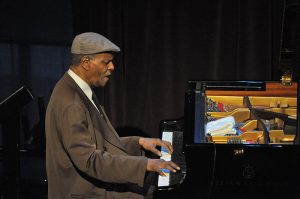
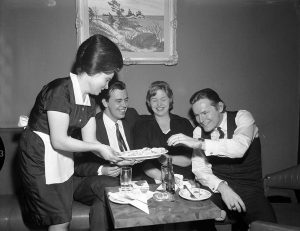
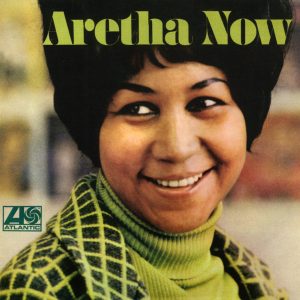
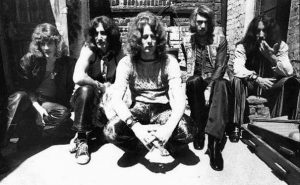


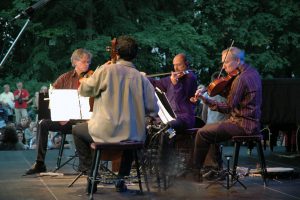


Add Comment